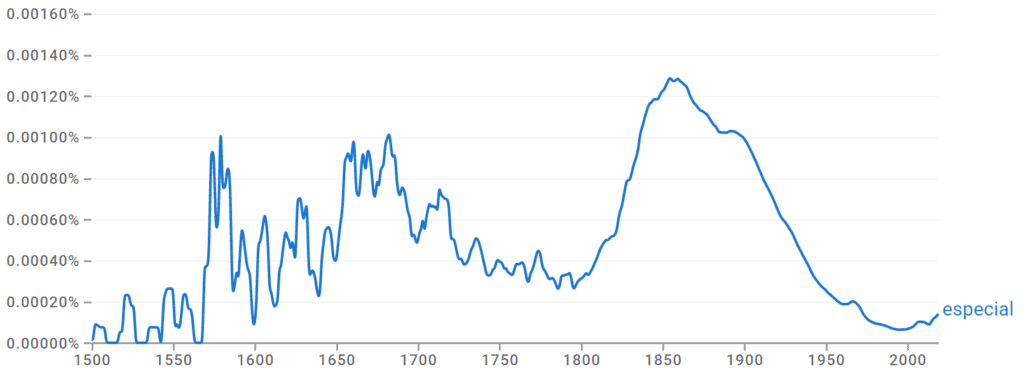Especial has long been assumed to be a mispronounced and accepted variation of the word special, but nothing could be further from the truth. It is a word in its own right and serves as an adjective, meaning exceptionally uncommon.
Both especial and special have specific meanings, and knowing the difference can help you write more concise and understandable sentences. Let’s take a look at the differences between them and the origin of especial.
What’s the Difference Between Especial and Special?

The adjective especial is not just a misheard form of special. It’s a word in its own right, meaning exceptional or of special importance. While special is synonymous with specific or particular, especial is synonymous with uncommon or exceptional.
Think of especial in relation to its corresponding adverb, especially. Especially is more common, but especial can apply to qualities that something has especially. For example, an especially sleepy cat has especial sleepiness.
What Does Especial Mean?
Especial is an uncommon adjective, meaning it isn’t used very often and has many synonymous meanings that usually take its place. It also has varied meanings and describes something noteworthy, exceptional, of special importance, abnormal, or unique.
For example:
- Chihuahuas are viewed with especial suspicion as they have a tendency to be quite nippy in new situations.
- She took especial interest in the new students since she knew she would have to mentor them through the first semester.
- He was having especial trouble with the anticipated due date of the semester’s final since it overlapped with an internship possibility.
What Does Special Mean?
Special is a common adjective used in various ways to describe something as having a distinct way about them or being designed for a specific purpose. Its prominent meaning is generally accepted to mean greater or better than what is usual.
For example:
- She had a very special way of showing her appreciation to her students and started a fund each fall for a park cookout at the end of every year.
- It was a special day for all of them; their oldest brother was finally returning from overseas.
- I would like tomorrow to be special, so I need you to keep your opinions to yourself.
Especially vs. Specially
Especially and specially are adverb forms of especial and special. Especially is more commonly used than especial and is used to mean better or particularly greater than usual, or for belonging to one person or thing.
For example:
- I hated the new car line release, especially the off-white editions; I felt they looked grungy instead of luxurious.
- She was especially concerned about the time she had left to complete her work.
Specially is not as common as special and is the adverbial form to mean particularly or in a distinguished manner.
For example:
- This part of the house was specially designed for the easy access of the seamstress’s clients when they had fittings and adjustments.
- These dresses were specially made for non-traditional weddings when the bride still wants white but not the glorious amounts of flowing organza and ribbons.
Origins of Especial

Especial is more or less unchanged since the late-14th century introduction of the Old French especial, meaning “pre-eminent or important.” The word is derived from the Latin specialis, meaning “belonging to a particular kind or species,” and species, meaning “kind.”
Special has taken over much of especial‘s territory, though, and is now often used as a synonym for uncommon or exceptional. Because of this, especial may someday fall out of use.
Especial is still relatively strong in British English.
Let’s Review
Especial and special are both adverbs, but that is where their similarities end. Especial has been used since at least the 14th century to mean of special importance or exceptionality. Special is a more specific or particular object.
